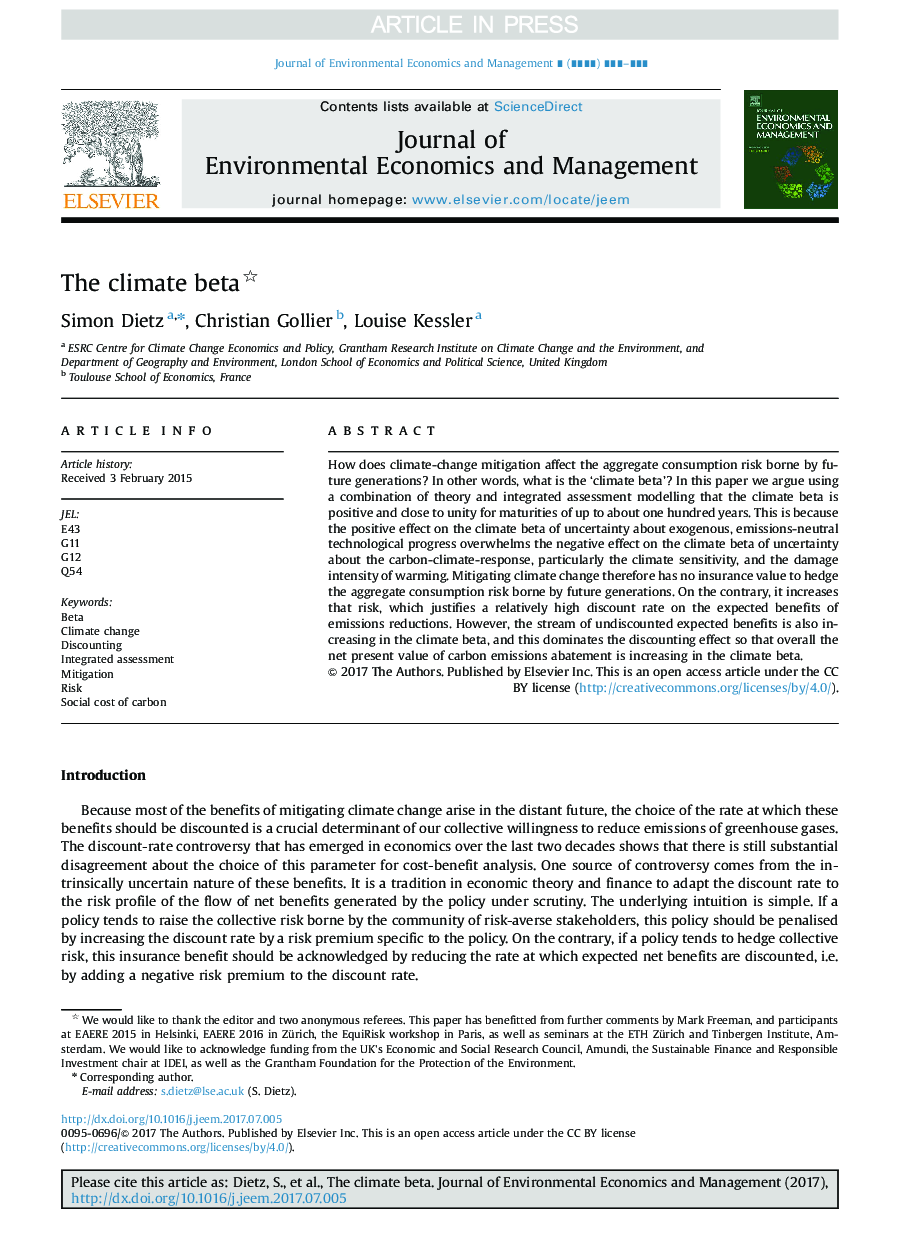| Article ID | Journal | Published Year | Pages | File Type |
|---|---|---|---|---|
| 7361520 | Journal of Environmental Economics and Management | 2018 | 17 Pages |
Abstract
How does climate-change mitigation affect the aggregate consumption risk borne by future generations? In other words, what is the 'climate beta'? In this paper we argue using a combination of theory and integrated assessment modelling that the climate beta is positive and close to unity for maturities of up to about one hundred years. This is because the positive effect on the climate beta of uncertainty about exogenous, emissions-neutral technological progress overwhelms the negative effect on the climate beta of uncertainty about the carbon-climate-response, particularly the climate sensitivity, and the damage intensity of warming. Mitigating climate change therefore has no insurance value to hedge the aggregate consumption risk borne by future generations. On the contrary, it increases that risk, which justifies a relatively high discount rate on the expected benefits of emissions reductions. However, the stream of undiscounted expected benefits is also increasing in the climate beta, and this dominates the discounting effect so that overall the net present value of carbon emissions abatement is increasing in the climate beta.
Keywords
Related Topics
Social Sciences and Humanities
Economics, Econometrics and Finance
Economics and Econometrics
Authors
Simon Dietz, Christian Gollier, Louise Kessler,
